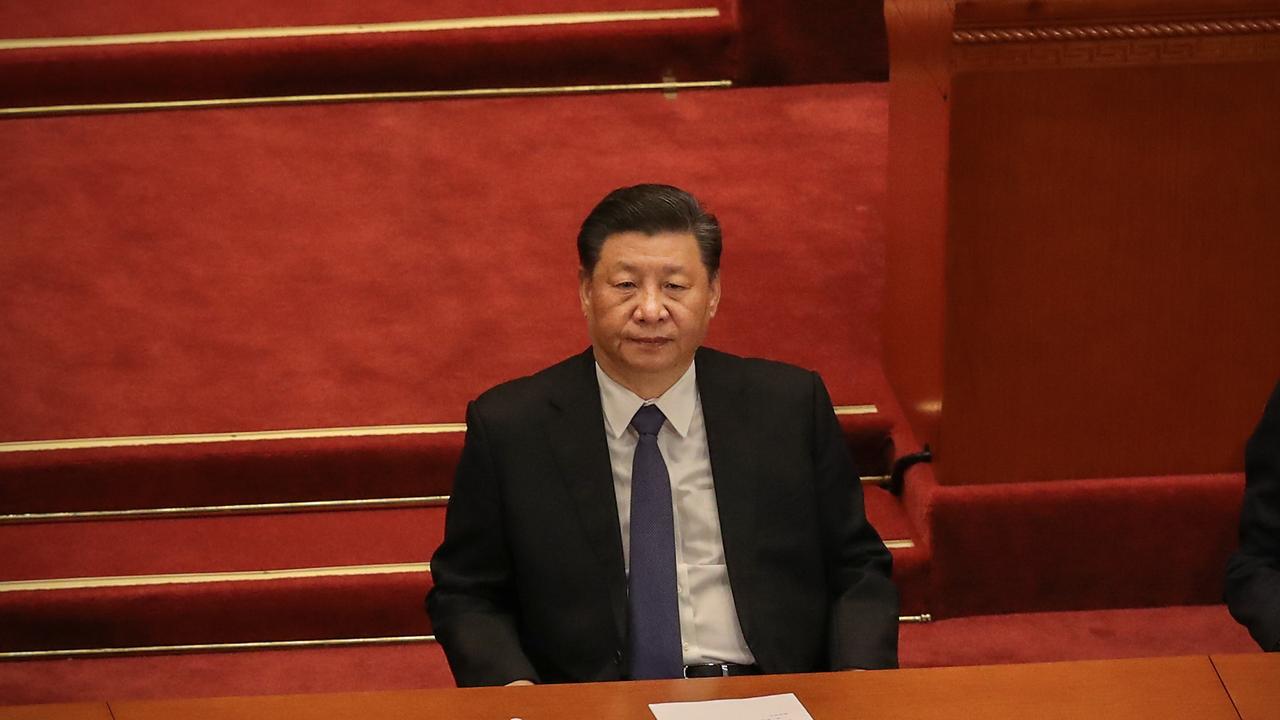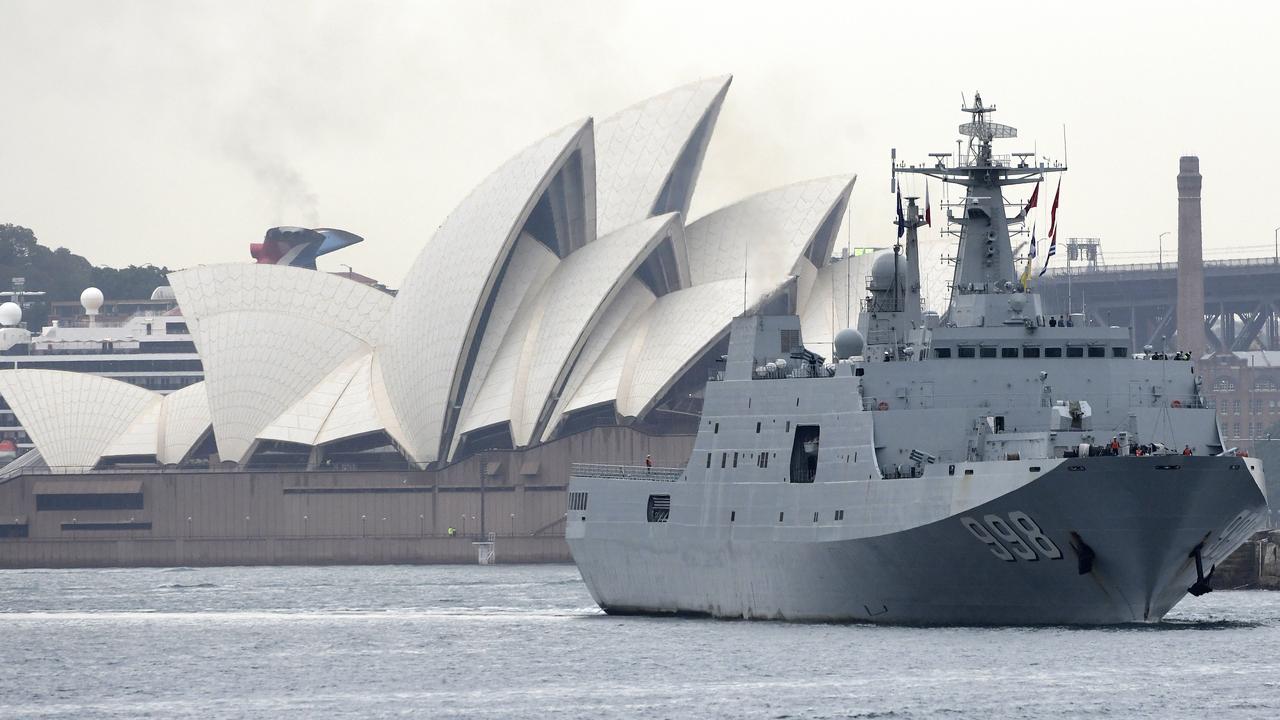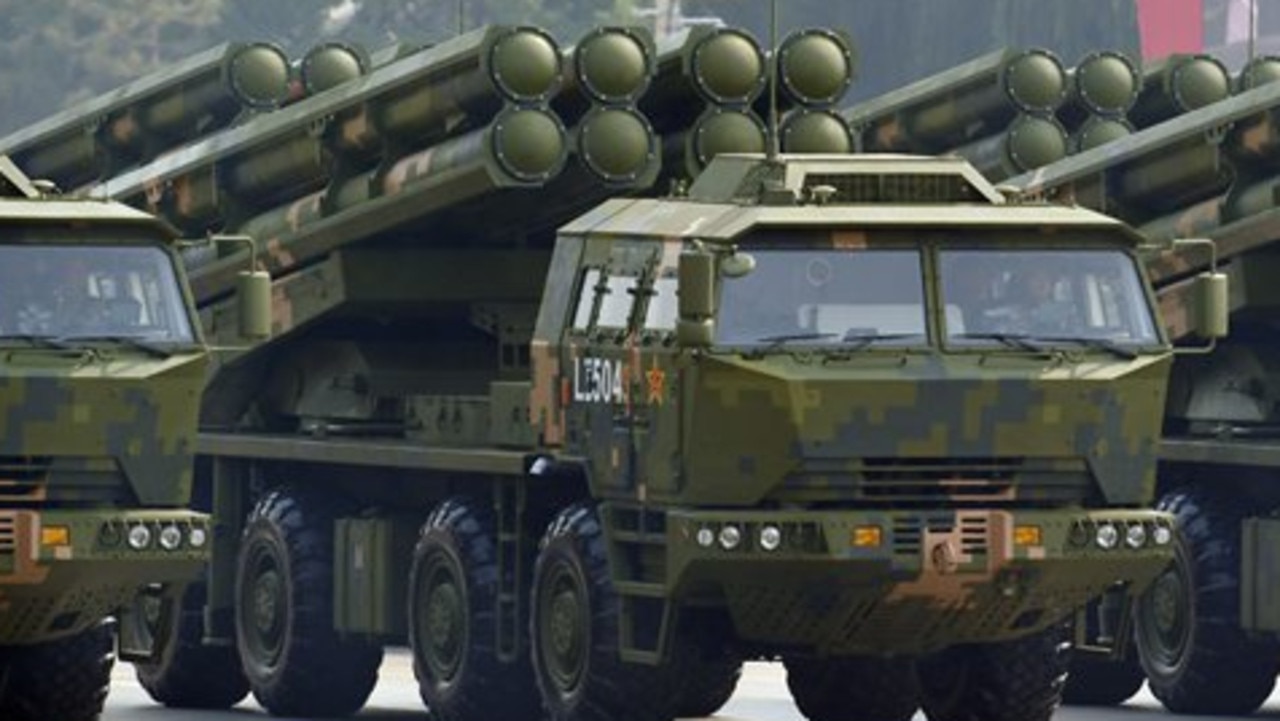‘Urgent’ China warning claims Australia needs alliance with US
The superpower’s recent conflict with India is just the latest sign of aggression in the region and the PM needs to act now, a new report says.

Australia must urgently strengthen its partnership with the United States, Japan and other regional partners to resist China’s gradual domination in the Indo-Pacific, a leading researcher has warned.
The superpower has become increasingly brazen in its assumption of power throughout the region, according to the University of Sydney’s United States Studies Centre.
The top research institute has outlined a policy framework for Australia and the US ahead of its upcoming ministerial meeting (AUSMIN), claiming the alliance has never had a “more urgent” time to show leadership.
RELATED: Chinese labels Australia ‘the dog of the United States’
RELATED: Battle that claimed at least 20 soldiers’ lives
RELATED: Beijing’s misinformation war against Australia
China’s Belt and Road Initiative, its island grabbing in the South China Sea, military force in the Taiwan Strait, its annexation of Hong Kong’s legal system and the recent clashes at the border with Indian forces reveal a menacing strategy for regional control, the centre said.
“While the United States has been largely distracted during COVID-19 with its own domestic concerns, China has taken advantage of an uncertain regional situation to advance its expansive geopolitical interests in key flashpoints across the Indo-Pacific,” the centre’s director of foreign policy and defence Ashley Townshend told news.com.au.

“China already has already taken advantage of the pandemic to prosecute its regional agenda in ways that are not favourable to our interests,” he said.
A key recommendation from the research centre is for Australia and its allied powers to increase its spending on infrastructure to make the region less reliant on China’s Belt and Road Initiative.
This cash splash has already allowed China to muscle into Cambodia where it now occupies a military base in the country’s south which it has been using to strengthen its territorial claims in the South China Sea.


Mr Townshend said Indonesia, the Philippines, Malaysia and Vietnam are now vulnerable to Beijing’s push into the region.
“The period in which Cambodia was only vulnerable to China’s strategic incrementalism has passed,” he said.
“Cambodia for a long time now has fallen very closely within Beijing’s orbit. Laos is heading down a similar path.”
The policy expert said Australia and the US are yet to find an effective way to push back against China which has steadily been building and occupying islands in the South China Sea.
“What’s in our national interests is for regional countries to be better able to stand up for themselves – to be more aware and able to respond in a timely way to China’s coercive statecraft,” Mr Townshend said.
“Supporting Southeast Asian and Pacific nations to better defend their sovereign interests should be our focus – building partner capacity, working to share intelligence, stepping up our efforts to sail and fly with them in disputed parts of the region is a better approach.
“All of this increases the chance they will be able to withstand Chinese aggression and prevent it. It raises the costs of unprovoked aggression for Beijing.”
Australia has recently become the focus of the Chinese propaganda machine after it led calls for an independent investigation into the coronavirus outbreak’s beginnings in Wuhan.
China has claimed Australia is “the dog of the United States” and Mr Townshend said the Morrison Government must tread carefully when navigating this diplomatic relationship.
“Much of China’s official government messaging – as well as the unofficial echoing of those messages by Chinese bots and Twitter accounts – is designed to skew the English-language public and foreign policy debate in ways that advantage Beijing and disadvantage Australia,” he said.
This use of propaganda intends to undermine the relationship with the US as well as the partnership’s influence in the Indo-Pacific by “employing false narratives to play up domestic sensitivities about Australia’s insufficiently independent foreign policy”.
“China appears to be seeking to establish a regional order in which it can advance its own foreign policy agenda in ways that are unencumbered by other powers,” Mr Townshend told news.com.au.
“In order to advance its influence, China aims to reduce the scope for collective action and increase the reliance of individual countries on Beijing in order to prevent them from adopting policy positions that are at odds with China’s strategic preferences.
“If left unchecked, this will reduce our own access and influence in the region.”




